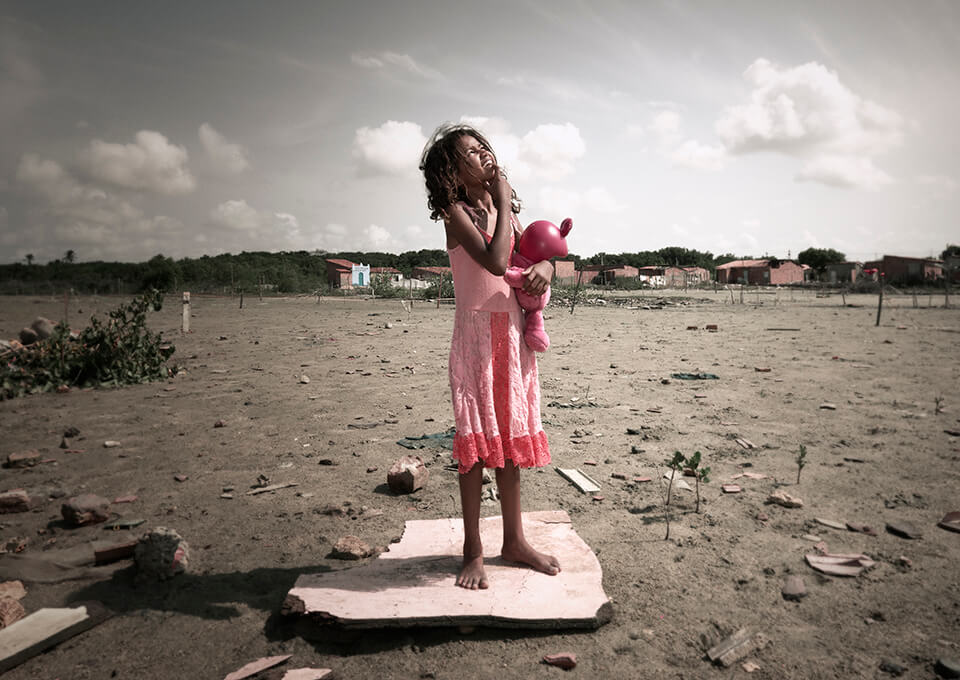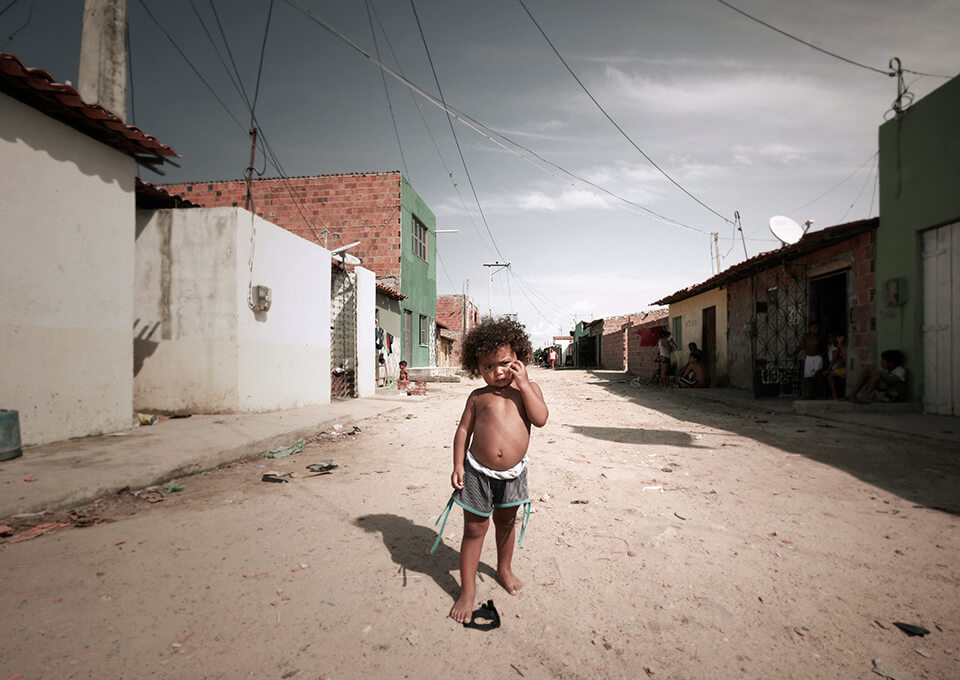A trip through the slums of Brazil’s most violent city of Fortaleza should give us insights on the pick up places of under aged prostitutes. But then we are stopped by heavily armed police and have to get out of the car.
Child prostitution
Depending on whom you consult, Fortaleza is one of the most visited tourist cities of the country (Wikipedia), Brazil’s capital for child prostitution ((de Guardian) or the second most violent city in Brazil, based on the number of murders. (ONG)
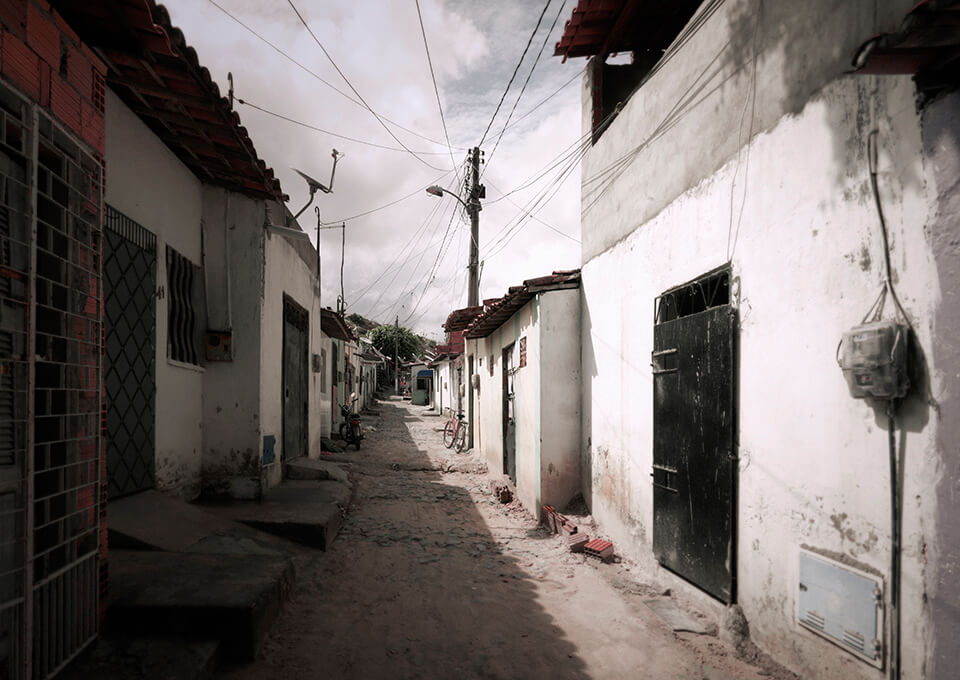
It’s false sense of security. That the windows are wide open in the absence of air conditioning and that a gun can not be stopped by a locked door, we choose to ignore. This time we go in a northeasterly direction. Just a short distance along the twenty kilometer long city beach. Night falls quickly and the ocean waves crash against the shore with anger.
Fort Schoonenborch
It was the Dutch who founded Fortaleza. It was 1649 and the stretch of beaches and palm trees was then called Fort Schoonenborch. Not a story anybody recalls any longer. If the Dutch are mentioned nowadays, it is related to football or sex tourism.
Sometimes a bar owner or tour operator makes the headlines because he is arrested after boasting about his sexual escapades with underage girls. Not that it often leads to convictions, because that is also Brazil. Poor prostitutes, let alone children, never stand a chance against men paying for sex.
Sex with underaged girls
However, foreign men are not the only nor biggest the threat. In an environment where poverty, lack of education, violence and drugs make everyday live a struggle for survival, the Brazilian men pose a greater danger.
They are the dealers in the slums that supply girls with drugs. They are the ones who, for a few Brazilian Reals, will have sex with crack addicted girls. They are the owners of expensive hotels in the city who can order minors for their sexual pleasures without ever being convicted.
Fatherhood ends after making babies
And they are the ones who take away financial worries from mothers in exchange for their eight-year-old daughters. Going into prostitution is the only way for many women to feed their children and to survive in an environment where fatherhood ends after making babies.
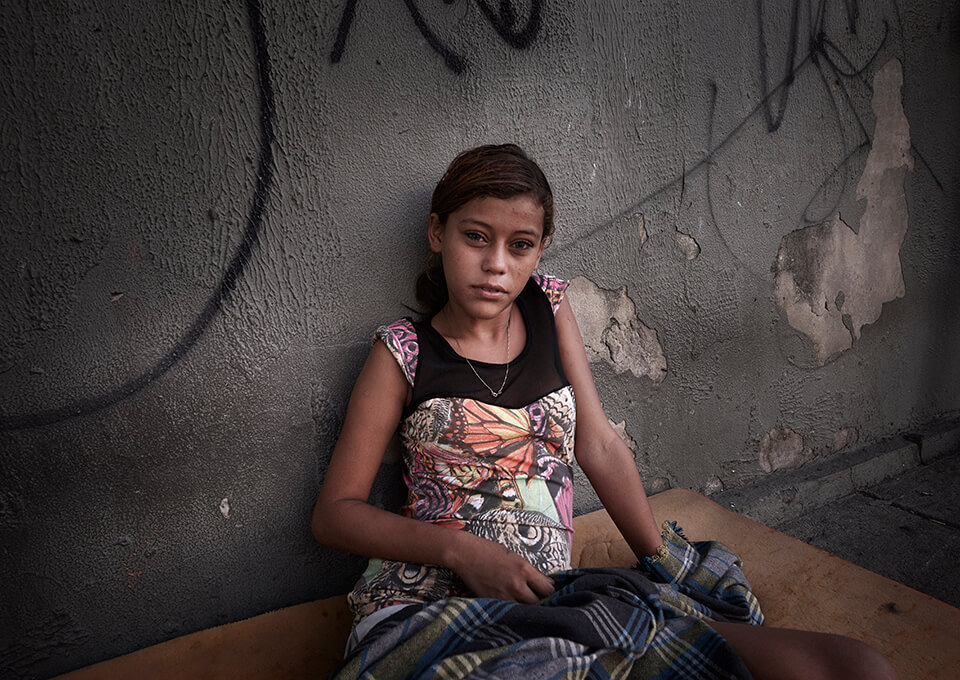
Dico, the cab driver turns around, “Where do you want to go?” The driver knows the city well. We have visited many favelas over the last few days. He seems impressed when we mention the names of dangerous slums like Barra do Ceará and Oitáo Preto. But the port district Serviluz, named after the lighthouse, we have not visited yet.
Beiro Mar
The cab drives away from the lively Beiro Mar boulevard where tourists hang out. Hotels, restaurants, markets full of local crafts and people who exercise in fluorescent suits and ditto sport shoes any given hour of the day. Here the sea is still mild, the beach still flat.
But as soon as we round the cape the scenery becomes devoid of life. The blocks of hotels have disappeared and give way to the port and finally small houses and huts along the beach. The wind blows malicious.
Serviluz
Google Serviluz and you are treated to websites with updates on the latest killings during the nightly hours. An accumulation of chacinas, massacres, as the media, invariably calls them. The killings are always drugs related, killers and victims seldom older than twenty-five.
Were you to come here during the day, you would see low colored houses. The plaster faded if there was any plaster. The bars on the doors and windows invariably fitted with locks. Boulders stopping a violent ocean from crashing against the shore. As if nature reflected the violence among the residents.
Pregnant women
We drive through dark narrow streets full of people. In front of most houses a plastic table. Children everywhere. Sometimes naked but mostly in underwear or swimwear. Pregnant women fill the door openings. “Teenagers seem to be missing,” says the photographer.
Teenage mom at 13
But she is wrong. In a neighborhood where boys and girls are already parents at the age of 13, there simply are no teenagers.
Dico has given his country a lot of thought. He thought about the violence, about the prostitution. According to him it has increased over the past 15 years he has been driving people around in his taxi. And yes also among minors. The introduction of the Children Act (Estatuto da Criança e do Adolescent) in 1990 was to combat child prostitution.
Child prostitution
“There is less visible child prostitution, but it has not disappeared,” he says, one hand on the steering wheel. “It has just gone underground. “I drive fewer foreigners around but they are replaced by Brazilians . Brazil’s rich get richer.“
The country is on the verge of moral bankruptcy. “We have laws against child prostitution, every gringo who enters the country has been notified that sex with minors is a one way ticket to jail and a crime against life but here,” as he points out of the window, “it has simply increased.
Only drugs
There is no work here, no hope. Only drugs. Look!” Heavily armed police in bulletproof vests hang around a police station with machine guns . “Next to a bar where young girls prostitute themselves. They do nothing about it.”
As we drive along the coast we see people sitting under thatched canopies. Some small children are playing on the dark beach. We’re in the only car driving through the neighborhood. An uneasy feeling comes over me. For the first time in days, I do not feel safe. Strangely enough walking through the favela felt better than driving around in it.
Crack addicts
“No need to worry,” the driver laughs as the interpreter translates my feelings. “As long as you leave people alone, they leave you alone.” But I’m not at ease. The taxi goes at a footpace here in the narrow cobbled streets.“
A handful of crack addicts, is all you need to stop a car full of Gringo’s in a neighborhood full of anger. “Shit,” the driver says. “A problem. Police. “Behind us suddenly appears a jeep. Bright lights on our rear window. The driver stops.
Intimidating
“I have to get out”, he says. I see him disappear behind the car with his hands in his neck. Moments later the interpreter is summoned to get out as well. He disappears out of sight. Nomad and I sit silently in the car. It’s intimidating to not see and understand what is going on behind you.
More yelling. We have to step out as well. We are being directed towards a wall. I feel how the tropical breeze lifts up my skirt. In front of me lies the ocean. Just across from it is Africa. Somewhere, far away to the north, my beloved ones are fast asleep while two men, wearing dark caps, hold us at gunpoint.
Bulletproof vests
I see how the interpreter and the driver are forcibly searched. A group of residents is watching us emotionless or so it seems. It is quiet, with the exception of the pounding of the sea. So many people and yet so quiet. I stand with my hands above my head and feel my heart racing. I’m not afraid of the men in bulletproof vests, but feel frustrated by the language barrier.
What if they summon me to do something and I do not have a clue as of what to do? Will I be shot like many of the young men whose bloody endings I’ve seen in recent days in the media? The Brazilian press is fond of posting photos of tortured and savagely killed boys.
Tortured to death
The image of a boy, his hands tied above his head before he was tortured to death, is burnt into my retinas. So is the mother of one of the girls I interviewed. Her ten year old brother witnessed the killing of his mother. On her knees, her hands in supplication, she was slaughtered. A month later, I found her son apathetically staring at the dirty ceiling of the bedroom of his sister.
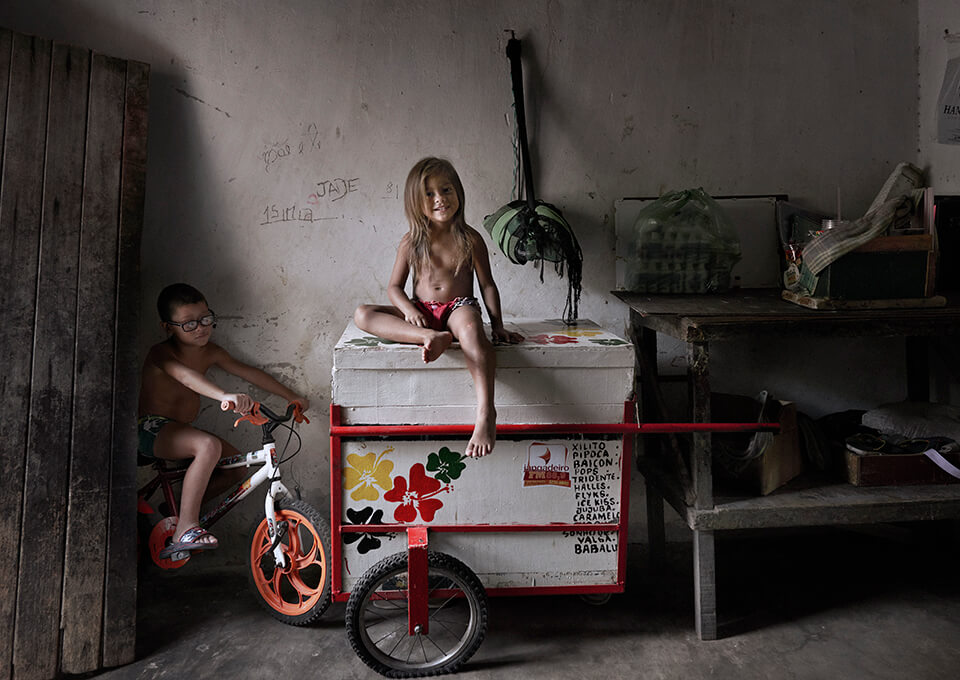
Next to me I feel how the photographer is recording. Her eyes compensating for the lack of camera. Then the interpreter asks gently if he can explain our presence. That we are here for a feature on child prostitution. And that we wanted to see the places where men and minors meet. No reaction. It feels like time is being put on hold. We stand there endlessly.
Then finally one of the officers starts talking. Moments later the interpreter translates his story. We have been detained because of the car. In this district no one comes by car, let alone by taxi. Unless you want to commit a murder. Than you hire a taxi and while driving around you empty your guns.
In the morning, while the ocean rolls gently against the beach and tourists are getting ready for a day at sea, I read that during the night, a taxi driver was killed in his car.
Text: Anneke de Bundel – Images: Nicole Franken
This story came about at the invitation of Free a Girl, a NGO dedicated to free young girls from forced prostitution and to prosecuting the offenders.

